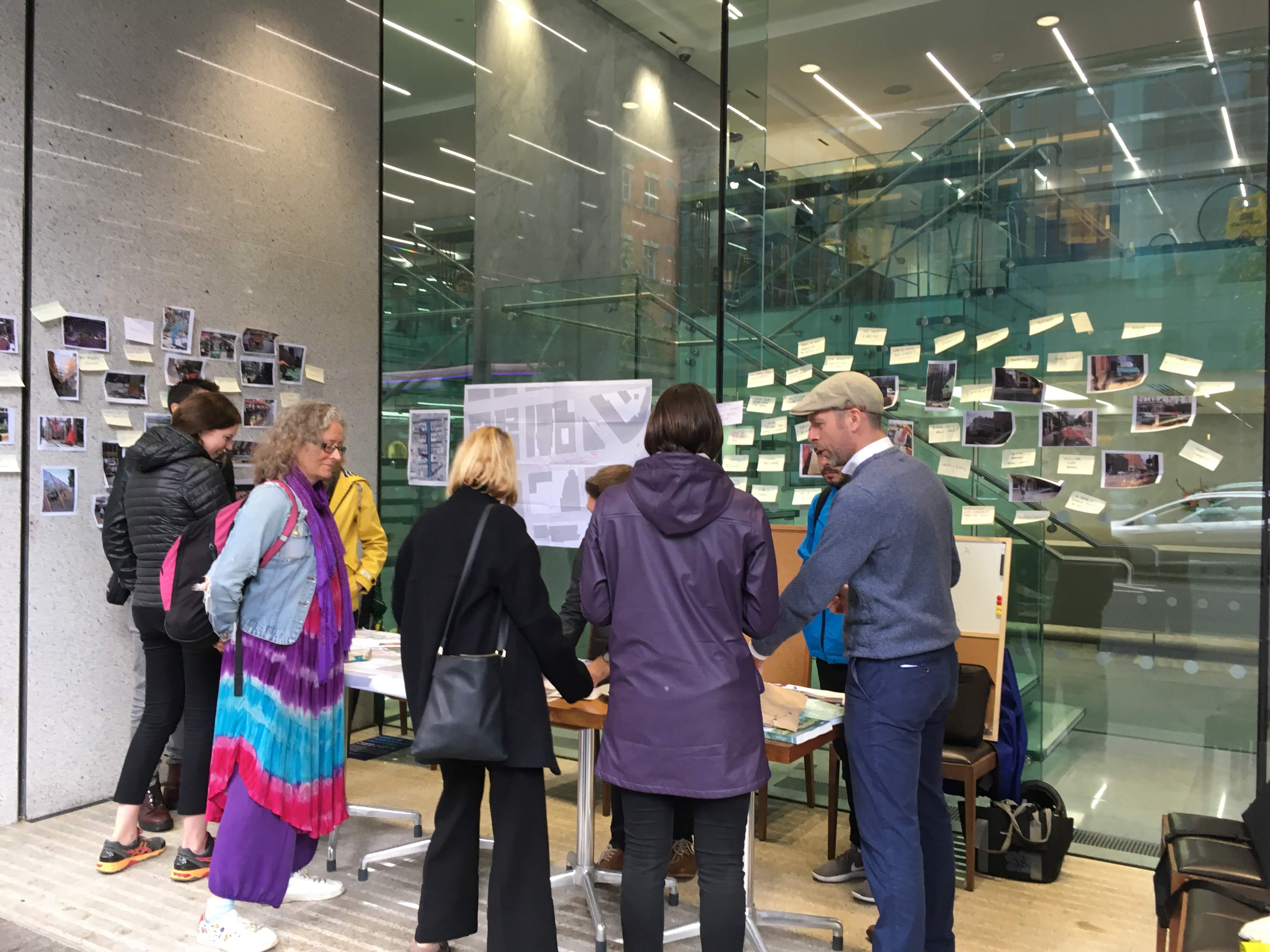Introducing: CCQOL Belfast
This post was written by Dr Saul M Golden, RIBA, RSUA, MRIAI(Ireland), SFHEA
Lecturer in Architecture and Spatial Design, Ulster University
Community Involvement in Northern Ireland has earlier roots in the establishment of the Devolved Administration in 1998. A unique aspect of the Northern Ireland Act (1998) known as Section 75, The Equality Act, set out statutory responsibilities for Councils and other Authorities to assess the “adverse impacts of policies adopted by the authority on the promotion of equality of opportunity; …[and]…for ensuring, and assessing, public access to information and to services provide by the authority” (Schedule 9, Paragraph 4.2b). The Belfast Agenda combines with a more recent joint Belfast City Council and Northern Ireland Executive Bolder Vision (2020) paper to extend community involvement in local changes. Both policies further support Stormont’s 2020 New Decade New Approach to the wider Northern Ireland Devolved Administration, which states “the principles and practice of citizen and community engagement and co-design will be a key part of the development and delivery of the Programme for Government and its supporting strategies.”

Looking ahead, the Belfast Pilots will build on Dr Golden’s and other contributors experience using active engagement tools and “activentions” that combine arts-community based events in both outdoor and indoor spaces. Previous Belfast-based experiments with performative events over the past ten years, sometimes in public spaces and always in collaboration with government departments, voluntary and arts groups, academics, professionals, and members of the public have proven effective in supporting and extending traditional consultation toward more effective engagement. Through CCQoL these events will integrate with innovative online tools, working with Commonplace and QoLF, and drawing lessons from CCQoL Pilots in Reading, Cardiff, and Edinburgh. Through CCQoL, Belfast looks forward to working as part of the UK-wide projects. The CCQoL Beflast team will continue to grow. We will be calling on contributors to help develop better tools to support, and where necessary challenge the policies, delivery, and methods that can move Belfast toward quality liveability ambitions and more effective roles for citizens in co-developing and co-delivering those outcomes.